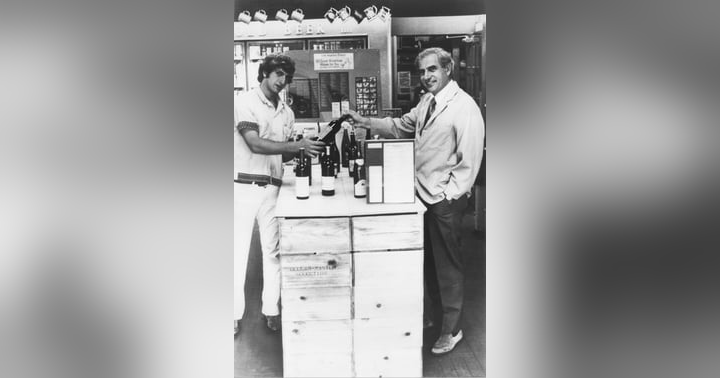The Power of Connection in Modern Hospitality

```html
In today's fast-paced digital world, genuine human connection is more valuable than ever. This blog post delves into the transformative power of authentic interactions, particularly within the hospitality industry. We'll explore how seemingly simple experiences, like a wine tasting, can be elevated to unforgettable moments through genuine human connection. This complements our recent podcast episode, which discusses the evolving landscape of modern service and the crucial role of connection in revitalizing the hospitality sector. You can listen to the full episode here: Is Hospitality Done For Good? The Truth About Modern Service Culture | Vannessa Scott-Allen.
The Diminishing Touch: Why Connection Matters
In a world dominated by screens and automated services, the human touch often gets lost. Guests crave authenticity; they yearn for experiences that resonate on a deeper level than simply fulfilling a transactional need. This is especially true in the hospitality industry, where the goal extends beyond providing a service; it's about crafting an experience, a memory. Think about your own experiences: what truly stands out – the perfectly poured drink, the perfectly cooked meal, or the genuine smile and engaging conversation with the person serving you?
The rise of online reviews and social media has amplified the importance of genuine interactions. A positive review isn't just about the quality of the food or service; it often reflects the overall feeling the guest had, the connection they made with the establishment and its staff. A negative review, conversely, frequently highlights a lack of connection or a perceived insincerity. These online platforms have given voice to the consumer, highlighting the growing demand for authentic experiences.
Authenticity: The Cornerstone of Memorable Experiences
Storytelling and Wine: A Powerful Combination
Imagine yourself at a wine tasting. You're presented with a glass of wine, and the sommelier simply states the name and region. Now, imagine the same scenario, but the sommelier shares a captivating story about the vineyard, the winemaker's passion, the unique terroir that contributes to the wine's distinct character. Which experience is more memorable? The second, undoubtedly. Storytelling transforms a simple act of tasting into a journey of discovery, fostering a deeper connection with the wine and the people who created it.
This concept transcends wine. Whether it's a chef explaining the inspiration behind a dish, a hotel concierge sharing insider tips about the local area, or a bartender crafting a cocktail with passion, storytelling injects heart into the experience. It transcends the transactional and creates an emotional connection that guests will cherish long after they've left.
Beyond the Transaction: Building Relationships
Genuine connection isn't about forced friendliness or superficial pleasantries. It's about a sincere interest in the guest, a genuine desire to create a positive experience. It involves active listening, remembering details (like a guest's name or preferred drink), and adapting the service to meet their individual needs. It's about building relationships, creating a sense of community, and making guests feel valued and appreciated.
This requires empathy and emotional intelligence. It means understanding that each guest is an individual with their own unique personality, preferences, and needs. It demands attentiveness and adaptability – the ability to read the room, to gauge the atmosphere, and adjust the interaction accordingly. It's an art as much as it is a skill.
The Impact of COVID-19: Reshaping Hospitality
The COVID-19 pandemic significantly altered the hospitality landscape. Lockdowns, restrictions, and health concerns forced businesses to adapt and innovate. But amidst the challenges, a new appreciation for human connection emerged. The pandemic highlighted the importance of empathy, resilience, and the human touch. The enforced distance made people crave genuine interactions even more.
The shift towards contactless services and increased hygiene protocols shouldn't diminish the importance of connection. Instead, it challenges hospitality professionals to find innovative ways to maintain a personal touch while adhering to safety measures. This might involve using technology to personalize experiences or finding creative ways to engage with guests while maintaining physical distance.
Self-Care: A Necessary Ingredient for Exceptional Service
Providing exceptional service requires a significant emotional investment. Hospitality professionals are often on their feet for long hours, dealing with diverse personalities and occasionally challenging situations. To consistently deliver outstanding service, it's crucial for individuals in these roles to prioritize self-care. Burnout is a significant issue within the industry, and prioritizing mental and physical well-being is essential for maintaining both personal health and professional success.
Self-care isn't selfish; it's a necessity. By prioritizing their own well-being, hospitality professionals can approach their work with renewed energy, empathy, and a greater capacity for connection. This, in turn, leads to enhanced guest experiences and a more fulfilling career.
Cultivating Curiosity: The Key to Growth
A curious mindset is crucial for fostering genuine connection. By actively seeking to understand guests' needs and preferences, hospitality professionals can provide more personalized and meaningful experiences. Curiosity drives innovation, creativity, and a deeper understanding of the human element within the hospitality industry. It's about continuously learning, adapting, and evolving to provide exceptional service in a constantly changing world.
Conclusion: Reimagining Hospitality for the Future
The power of connection in modern hospitality cannot be overstated. In a world increasingly driven by technology and automation, the human touch remains invaluable. Authenticity, empathy, and a genuine desire to connect with guests are no longer just desirable traits; they are essential for success in the hospitality industry. By prioritizing genuine interactions, fostering meaningful relationships, and embracing a culture of self-care, hospitality businesses can create memorable experiences that resonate long after the interaction has ended. This resonates strongly with the points discussed in our recent podcast episode with Vannessa Scott-Allen, Is Hospitality Done For Good? The Truth About Modern Service Culture | Vannessa Scott-Allen, where we explore the evolving nature of modern service culture and the crucial role of connection in its future. I encourage you to listen and share your thoughts!
```






